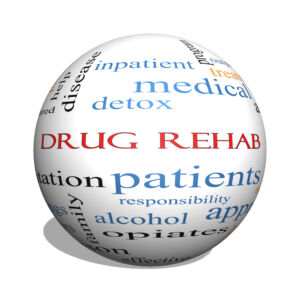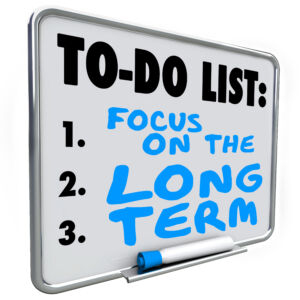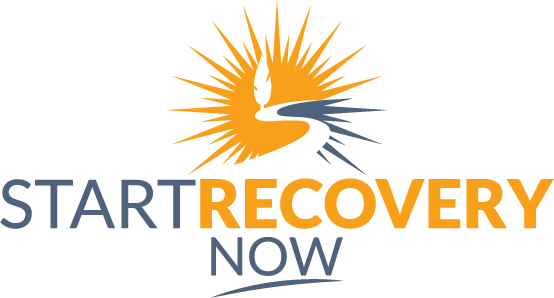The Process of Addiction Recovery
Navigating the addiction recovery process requires a clear and realistic […]
Navigating the addiction recovery process requires a clear and realistic roadmap—where do you start, and what challenges might you face? This guide strips back the complexities of recovery, providing concrete steps and understanding the personal nature of this battle. From initial acknowledgment of addiction to the strategies that foster long-term sobriety, we lay out the journey in terms you can understand and apply. Begin this transformative path with a guide that answers your pressing questions and supports your unique recovery walk.
Key Takeaways
- Recovery starts with recognizing addiction’s control over life and accepting the need for positive change, followed by committing to tailored treatment and lifestyle adjustments.
- Creating a strong support system, including family, peer groups, and mentors, coupled with developing healthy coping skills, is crucial for maintaining sobriety and navigating the recovery process.
- Long-term recovery involves continuously managing stress, navigating triggers, rebuilding relationships, and engaging in meaningful life activities beyond addiction, with a focus on relapse prevention and ongoing support.
Recognizing the Need for Change
Often, the hardest part of recovery is the initial step – realizing that drug addiction has become an issue that requires attention. It’s about peeling back the layers of denial and facing the uncomfortable feelings that come with acknowledging the negative consequences of addiction.
This self-reflective journey requires a thorough exploration of the depths of addiction and understanding its impact on your life. Recovery commences with:
- the frank realization that the substance holds control and has caused turmoil in your life
- accepting the need for change
- committing to making positive lifestyle changes that pave the way for recovery.
Exploring Your Addiction Treatment Options

The journey to recovery includes investigation of various treatment alternatives, customized to meet each individual’s unique needs and conditions. Comprehending the extensive array of addiction treatment options, including drug treatment, is fundamental to the recovery process.
We will further explore the subtleties of personalized treatment plans and the significance of incorporating mental health care, guided by the diagnostic and statistical manual, into the recovery process.
Individualized Addiction Treatment Plans
The path to sobriety is profoundly personal and distinct for every individual. Since addiction lacks a universal solution, personalized drug addiction treatment plans are vital to the recovery process. These plans are tailored to address the unique experiences, triggers, and coping mechanisms of the individual, creating a roadmap to sobriety that caters to their specific needs.
Effective aftercare often involves individual counseling for personal issues and group therapy for peer support, both of which are tailored to the individual’s needs. This comprehensive approach helps identify triggers and develop healthy coping skills, providing the tools needed to maintain sobriety and avoid relapse.
Integrating Mental Health Care
The road to recovery is not just about overcoming substance abuse; it’s also about addressing mental health issues that often coexist with addiction. Treating mental health problems alongside addiction treatment is essential to the recovery process.
A comprehensive approach to recovery involves combining addiction treatment with mental health care to address the intricate interplay between mental health problems and addiction. This dual approach ensures that the recovery process addresses all aspects of the individual’s health, paving the way for a holistic recovery.
Building a Support System for the Addiction Recovery Process

Support systems serve as the fundamental support structure of the recovery process. They are the safety nets that catch us when we stumble, the cheerleaders that celebrate our victories, and the sounding boards that guide us through our struggles. Family involvement, peer support groups, and mentorship services can significantly enhance the quality of life and promote hope and self-worth during recovery,.
Peer support groups such as 12-step programs offer a platform for sharing experiences and coping strategies, providing understanding and mutual support. Furthermore, being part of a support system helps individuals:
- Develop skills such as stress and anger management
- Improve communication skills
- Learn relapse-prevention tools
- Stay accountable
- Cope with stress healthily
Developing Coping Strategies for Sustainable Sobriety

An integral part of the recovery journey is learning to cope with life’s challenges without resorting to substance use. Developing effective coping strategies is essential in maintaining sustainable sobriety.
We will further discuss techniques to manage stress without resorting to substance use and strategies to navigate triggers and cravings.
Managing Stress Without Substance Use
Stress is a part of life, but how we manage it can make all the difference. For those in recovery, managing stress without resorting to substance use is a crucial skill to develop, as it can play a significant role in preventing relapse. Acknowledging the mind-body connection can lead to better mental and physical health and the adoption of healthier coping strategies.
Mindfulness techniques, such as meditation, can alter substance use reward processes, increase responsiveness to natural rewards, and reduce substance cravings, thereby supporting continuous sobriety. Practical stress relievers, including engaging in movement, enjoying nature, interaction with pets, and deep breathing exercises, can release feel-good neurotransmitters and provide calming effects.
Navigating Triggers and Cravings
Cravings and triggers are common hurdles on the road to recovery. Recognizing these and knowing how to navigate them is key to maintaining long-term sobriety. Identifying and understanding personal triggers, both internal and external, is a critical step in preventing relapse.
Mindfulness meditation can help individuals with substance use disorders, including drug abuse, by revealing the temporary nature of cravings and improving stress response. A crucial tool in navigating triggers and cravings for those in substance use disorder recovery is having an emergency contact list of supportive individuals who can provide immediate assistance when facing sudden cravings.
Repairing Relationships and Rebuilding Self-Esteem

Recovery involves more than merely conquering addiction; it also entails mending damaged relationships and restoring self-regard. Addiction often leaves emotional scars on relationships, leading to trust issues and communication breakdowns. Repairing these relationships is a fundamental aspect of recovery, focused on healing the harm to loved ones and adhering to the four supporting pillars of recovery recognized by the Substance Abuse and Mental Health Services Administration (SAMHSA):
- Health: Making informed, healthy choices that support physical and emotional well-being.
- Home: Having a stable and safe place to live.
- Purpose: Engaging in meaningful activities and setting goals for the future.
- Community: Building a network of supportive relationships and connections, including involvement in recovery community centers.
By addressing these pillars, individuals in recovery can rebuild their lives and create a strong foundation for lasting sobriety.
The process of repairing relationships involves rebuilding trust, improving communication skills, empathizing with loved ones, validating their feelings, and consistently following through with commitments. Simultaneously, rebuilding self-esteem entails working through emotions, taking accountability for past harmful actions, and making amends as a pathway to healing relationships. This journey of self-discovery and relational repair is strengthened by accountability, self-compassion, and maintaining patience and love for oneself and others.
Creating a Meaningful Life Post-Addiction
Sobriety extends beyond the absence of addiction; it involves cultivating a meaningful life following addiction. Recovery offers an opportunity to rebuild your life on your terms, to discover your passions and to set and achieve your goals. Reflecting on one’s personal values and setting clear, achievable goals is a fundamental part of this process, providing direction and purpose in the post-addiction recovery phase.
Engaging in new activities and interests like hobbies, exercise, and community involvement replaces previous substance-dominated routines and helps in preventing relapse. Individuals in early recovery should focus on achievable short-term objectives, such as maintaining sobriety, before progressing to broader life goals, ensuring a stable transition to a drug-free life.
Long-Term Relapse Prevention and Maintenance

Recovery is an enduring endeavor. It goes beyond achieving sobriety; it demands a long-term dedication to relapse prevention and sustaining a sober lifestyle.
We will examine the non-linear progression of recovery and the significance of aftercare and continuous recovery support.
Understanding the Non-Linear Nature of Recovery
Recovery, or disorder recovery, is not a linear process; it’s a journey filled with twists and turns, moments of progress, and times of regression. Understanding this can help adjust expectations and develop flexible treatment strategies that evolve with the individual’s changing needs and circumstances.
Reflecting on motivation and willpower can strengthen one’s commitment to sustained recovery efforts, which is necessary as the recovery journey is unpredictable and may present new challenges over time.
Moreover, mindfulness training may assist in preventing relapse by cultivating awareness of high-risk situations and supporting a positive hedonic tone, which is essential in a recovery process that can experience moments of progress and regression.
Aftercare and Sustained Recovery Support
Aftercare and sustained recovery support play a pivotal role in the maintenance of long-term sobriety. Sober living homes offer a drug-free environment for individuals transitioning from more intensive levels of care, reinforcing sobriety and integration back into daily life.
Aftercare treatment programs provide education, support, and tools to manage triggers and prevent relapse, making them vital for long-term sobriety. Some examples of aftercare programs include:
- Sober living arrangements
- Intensive outpatient programs
- Regular counseling
- Participation in alumni programs
- Securing a sponsor or sober mentor
Frequently Asked Questions

What are the 5 stages of the addiction recovery?
The five stages of recovery are precontemplation, contemplation, preparation, action, and maintenance. Each stage plays a vital role in the journey toward recovery.
What are the 5 recovery skills?
The 5 recovery skills include: engaging in physical activity, establishing a routine, staying connected with others, managing stress, and finding purpose in daily activities. These skills can help you on your journey to recovery and overall well-being.
What are the 4 steps in the recovery process?
The four steps in the recovery process include acknowledging the problem, seeking help, making changes, and maintaining sobriety. Remember, taking these steps is a positive and proactive way to work towards a healthier future.
How important is recognizing the need for change in addiction recovery?
Recognizing the need for change is crucial in the addiction recovery process, as it marks the first step towards acknowledging the impact of addiction and committing to positive changes to improve one’s life.
What is an individualized addiction treatment plan?
An individualized addiction treatment plan is tailored to the unique needs, triggers, and coping strategies of each person undergoing treatment, ensuring a personalized and effective approach. If you’re considering treatment and would like to see a list of rehabs in Florida just follow the link.




